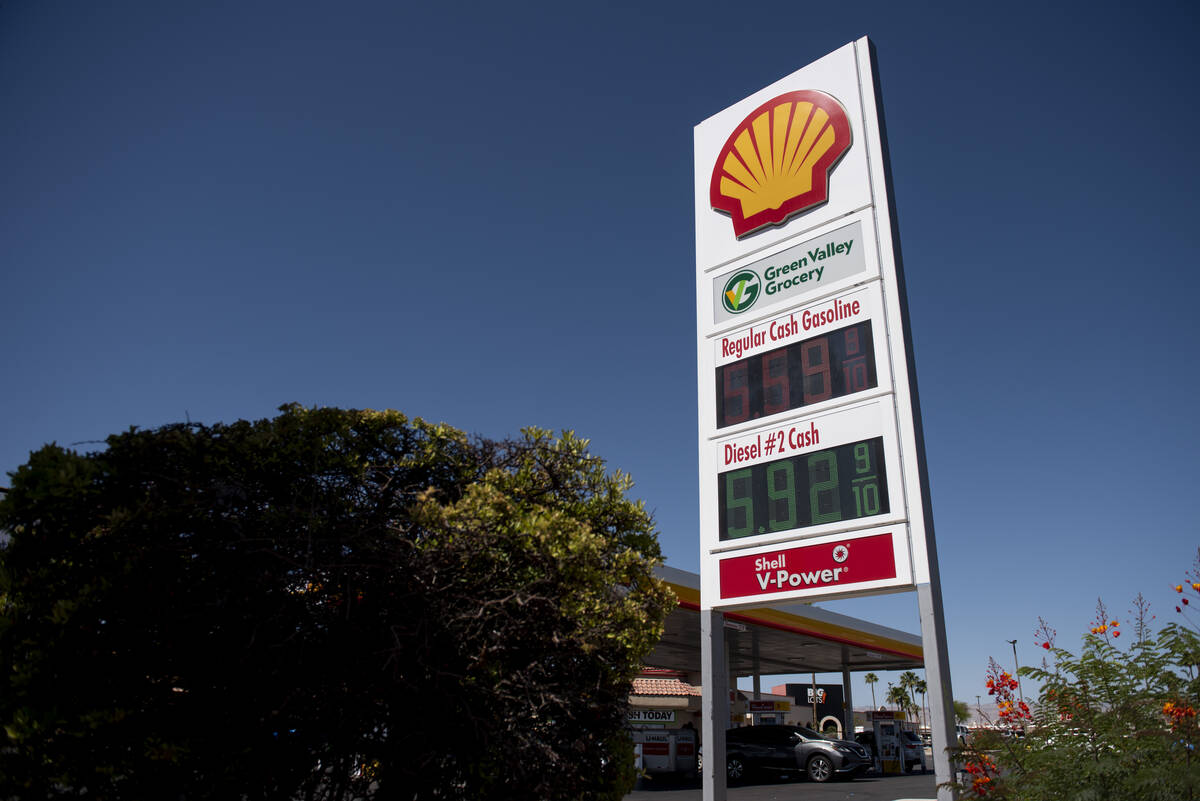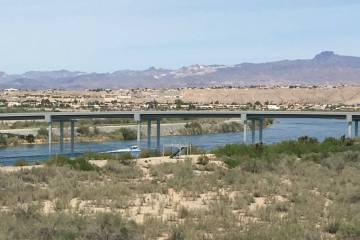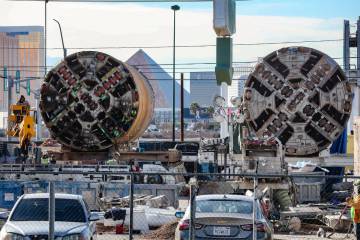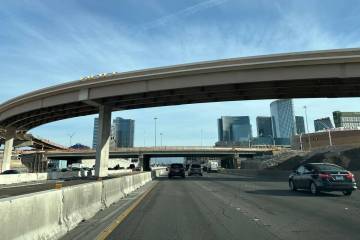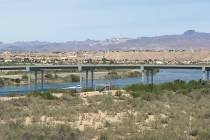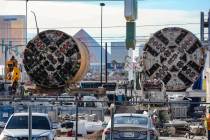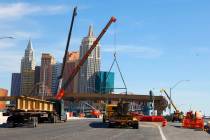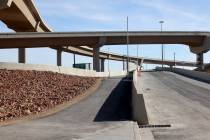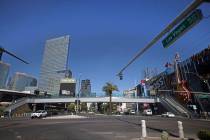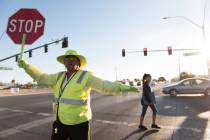Why a gas tax holiday in Nevada is unlikely
Motorists in Nevada shouldn’t hold their breath waiting for a gas tax holiday despite President Joe Biden urging states to consider the tax break as retail prices for fuel continue to hover near record highs.
In June, Biden pushed for a three-month pause of the federal 18.3 cents a gallon gas tax and hoped each state would follow suit by halting their own fuel taxes.
It’s an effort to provide temporary relief to motorists paying record prices for gas. In Las Vegas, gas prices have stayed above $5 per gallon since March 16, reaching as high as $5.61 on June 16.
In Clark County and Nevada, halting the fuel tax collection that is vital to funding much-needed road work would be a major undertaking.
If the tax were paused for three months, it would mean tens of millions of dollars not collected for future road projects in the Silver State.
“Over a comparable three-month period (July 2021 to September 2021), Nevada collected $81.5 million in state and federal gas taxes,” said Justin Hopkins, Nevada Department of Transportation spokesman.
In Southern Nevada 69.52 cents is collected as tax on each gallon of gasoline sold. Here’s where the money collected from the gas tax goes:
■ 21.64 cents per gallon goes to the Regional Transportation Commission of Southern Nevada;
■ 21.04 cents is sent to the state;
■ 18.4 cents per gallon goes to the federal government;
■ 8.44 cents per gallon goes to Clark County.
The gas tax revenue the RTC collects — estimated to be around $156.8 million in fiscal year 2022 — is distributed to jurisdictions like Las Vegas, Henderson, North Las Vegas, Clark County, Mesquite and Boulder City for road projects in those areas.
RTC Chief Financial Officer Marc Traasdahl said the agency’s estimates show that pausing the gas tax for three months between July and September would mean losing out on $51 million, impacting funding for some road projects.
“Probably not near term. We would avoid stopping projects under construction, that would be super expensive,” Trassdahl said. “But it would impact future projects. We would probably need to postpone a few projects in the future.”
Statewide road projects are pay-as-you go. NDOT is required to use state highway fund revenue to pay for all projects up front and is then reimbursed by the Federal Highway Administration for eligible federal projects, Hopkins said.
“Bonds are utilized to fund larger projects when it is determined to be financially advantageous,” Hopkins said. “Gas tax revenue is pledged toward the payment of bonds, requiring bond payments to be prioritized above all other payments, including current and future projects. … If state gas tax revenue were to decrease, it could impact our bond rating and ability to fund projects in the future.”
All that said, it’s likely that the RTC or NDOT will not have to worry about a gas tax holiday with state and county tax funds. The process to do so is a complicated one and would take multiple approvals.
“The big thing that causes this to be complicated is the bonding, that we do pay for projects with bond proceeds,” Traasdahl said. “That would really make a tax holiday difficult … we have this outstanding debt that we actually pledged this fuel tax revenue to the bonds. That really complicates thing trying to do a fuel tax holiday.”
Each bond holder would have to approve of halting collection of the fuel tax. Before those approvals could even take place it would need be signed off by the RTC Board of Directors, Clark County Board of Commissioners and the state Legislature.
“There is an NRS (state law) that prohibits that kind of activity (halting fuel tax collection) and also our agreement with the bond holders prohibits that,” Traasdahl said. “So, that would have to be changed on all those levels.”
A special session of the Legislature would likely be needed to make those changes, if near term relief is being sought. Otherwise it could be done during the 2023 legislative session, Trassdahl said.
Hopkins said NDOT is more concerned with how sky-rocketing gas prices could impact future project revenue.
“It’s important to note that we haven’t seen an actual bill stemming from President Biden’s recently proposed federal gas tax holiday, nor have there been any similar proposals on the state level,” Hopkins said. “We are continuing to evaluate other factors, such as the downward trend in gas tax revenue created by increasing inflation and decreased demand. That may have a significantly larger impact on the future of NDOT’s program.”
Contact Mick Akers at makers@reviewjournal.com or 702-387-2920. Follow @mickakers on Twitter. Send questions and comments to roadwarrior@reviewjournal.com.



